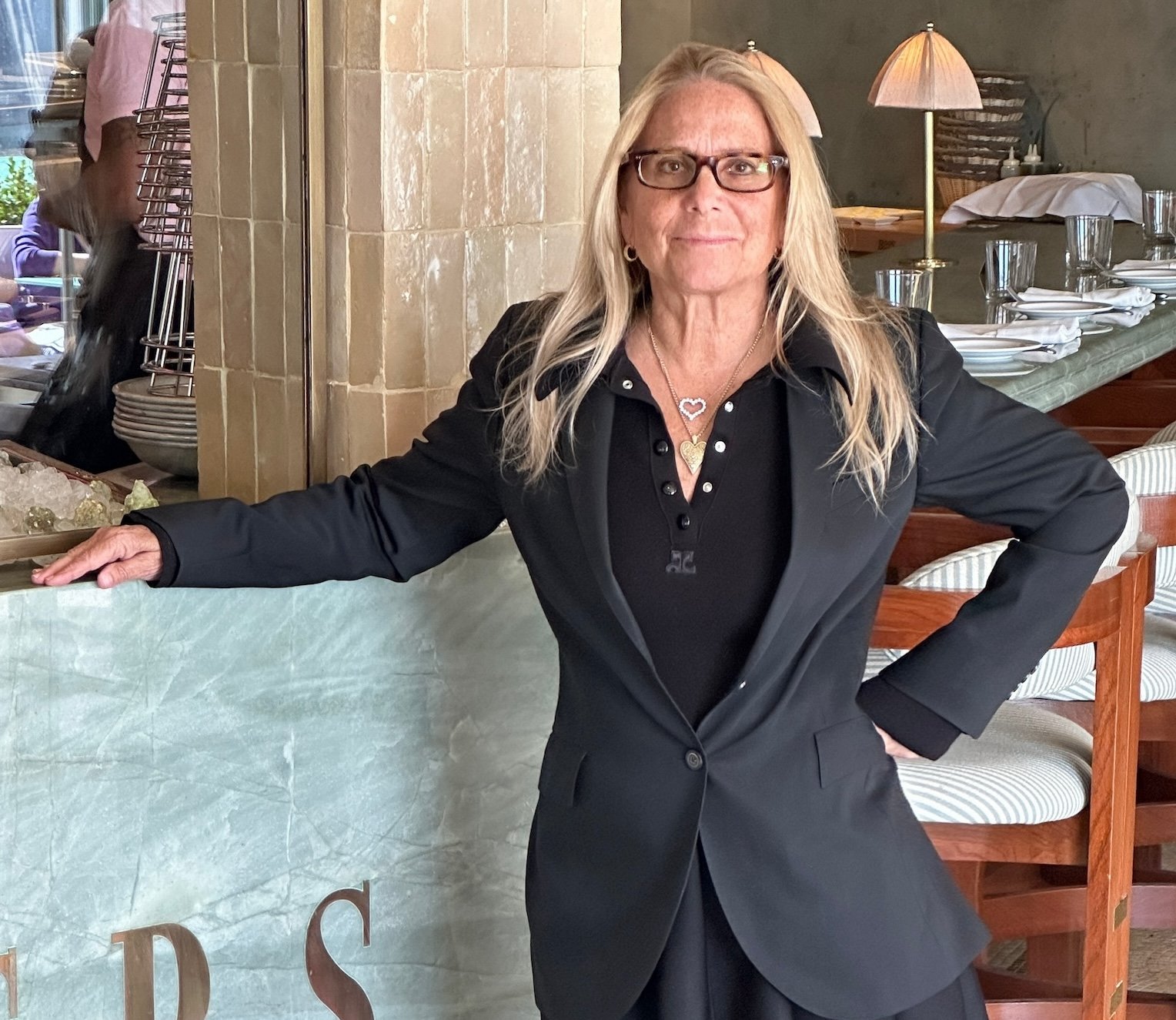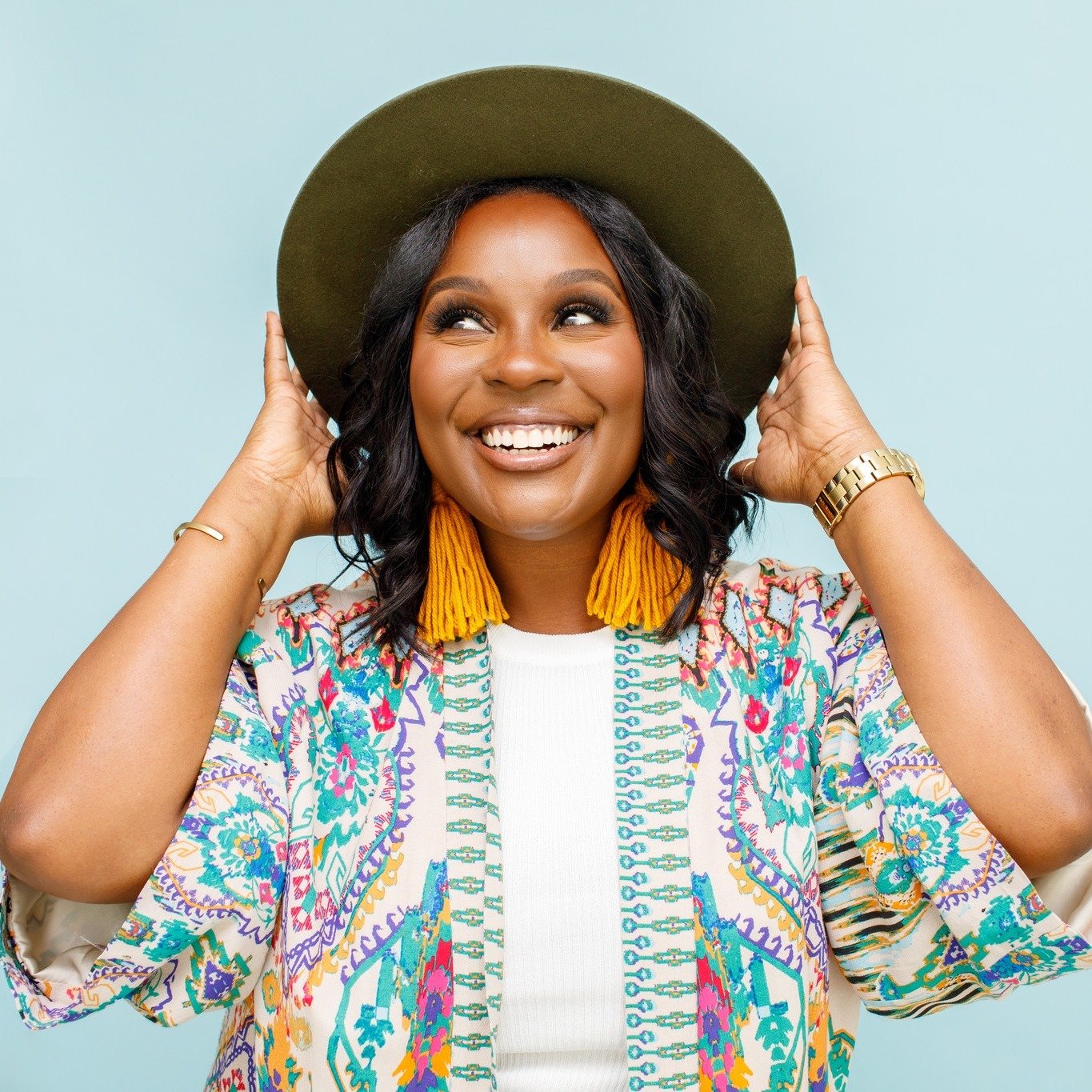Garance Doré Doesn’t Want You to Wait for Your Aha Moment
written by Stacey Lindsay
“I’m a reluctant business person. I’ve always been.”
It's hard to believe this comment comes from Garance Doré. The French-born creative has been the epitome of reinvention and change, making graceful pivots and shifts in the editorial and fashion worlds. Her public presence catapulted in the mid-2000s when she launched her blog to build momentum for her illustrating and photography work. Soon after, Garance was everywhere chic. Fans worldwide read her irreverent and candid words and pored over her street-style fashion shots as she traveled from Paris to New York to LA and beyond. She was, as we say, the first influencer and successful blogger.
In May 2022, Garance pivoted again—this time, in a markedly bigger way. She closed the digital doors to the latest iteration of her blog-turned-lifestyle site (after publishing a delightful book) and revealed her latest venture: a skincare line called Doré. Grounded in the French pharmacy philosophy of unfussy efficacy, Garance describes the collection as clean, safe, and sustainable. It's also simple. "I'm lazy with beauty," she admits. "Incredibly. I didn't want to have to use 17 layers with skincare."
It would be easy to dismiss Doré as another skincare line in an ocean of creams and serums. The truth is, Doré stands out and has gained a spot on Credo's coveted retail shelves and celebrities' top shelves.
So how does a self-described "reluctant business person" make so many successful career shifts? We explore this with Garance, who expresses herself with refreshing irreverance. At 48, she says the truth has guided her. "I suffer physically [...] if I don't live an authentic life."
Chatting with Jen Gottlieb
You've had so much success in fashion, blogging, and editorial. Now you're creating a product line. How have you consistently reiterated yourself?
I'm not extremely courageous. I knew I was having a hard time in fashion for a while. I waited until my body was like, no! I was having anxiety attacks. I want to say that because people can easily say, 'Oh, look at her. She's so free, and she doesn't care about money. She can throw everything away and start a new life.' It's not true. It was difficult. It was a real recalibration. There were many things I lost in the process. I knew it would happen. I didn't know, though, how and what I would do. It's like breaking up. You can't just be with another guy. You have to experience the nothingness, the fear, and all of that for it to be potent.
I think I am getting better at it. I can say, okay, leave before you suffer from it. But with that transition, I didn't do it as clean as it looked on the outside. It was full of fear. And it took a while.
One thing that is a thread in my life is that I'm a writer. I have that spirit. I'm well into my forties, and I'm growing into more of a writer. That's the joy of my life. I'm expressing myself in a better way. That's my joy, which also means that I have distance on everything, and everything is a story and a human experience.
When did you realize writing is at the heart of who you are?
It's been a long process, and it's still ongoing. I've had all kinds of epiphanies. It's because I read all kinds of books where people talk about their aha moment. And those are storytelling tricks because it's rarely so. And then people expect it's going to happen to them. They think, Oh, one day! It's funny because that trope has been cultivated more and more.
It's all a part of a process. Part of maturing is accepting that things are never as clean-cut. Sometimes you can get a surge of energy and motivation, but you lose it at some point. So it has to be grounded in yourself and not in exterior elements. One of the beauties as we age is we get to learn from our past.
Let's shout out Emily, the co-founder and CEO of your skincare collection, Doré. To have that support on the business side, who can listen to your intuition and figure out how to morph it into what's next, takes a lot of work. How did she handle the change from you two overseeing a media brand to a product line?
We live in a world where people always launch things, but you never hear about when things die. [Emily and I] grew media from my blogging days and hired more and more people. We had a studio in New York and were working with a lot of brands. But did we love that life of having to talk to advertisers constantly and start policing what we were saying and doing? There was all this heavy business. We didn't enjoy it as much. We enjoyed it a little bit at first because we were so excited the first time we had a studio. I come from a little island in the Mediterranean and never thought I would get there. Emily was a bit of the same.
But at some point, we started wondering if we really liked the [media business we had built]. We tried to transform it to find a way to make us happy the way we used to be. And we were suffering. It felt like work. There are ways to make a living without feeling like work. Then one day, we decided as friends to go to a silent retreat. It was five to seven hours of silent meditation for six days. At the end of it, we both went our own way. On my drive back, I called her, and it naturally came to me. I said, 'I think we have to close down. I think it's over.' And she said, 'You're right. I think it's over.' We cried a bunch, but we were also so relieved.
It's important to talk about the relief one can feel when one ends things that are not feeling good anymore. It was painful because of the idea of not working with her. We took the time to finish people's contracts and give them time to find other jobs. Then a month later, Covid broke. By then, we realized it had been a miracle because the company would never have made it in our format. So we were ready. This was also a testament to how it's important to follow your intuition, tune in, and sometimes get out of things.
It's refreshing to hear that you didn't go from closing one thing to having another plan. We often hear that people close one chapter, and the other chapter is ready . But it's sometimes different. There can be a gap and an unknowing.
To me, pain and joy are experiences of life. It's how you feel, human. I don't see them as negative or positive. Of course, I appreciate the peace I'm in now. It's not that I experience joy in pain, but I experience my human experience. I look at myself from the outside. I observe a lot. Meditation helps with that. There can be a part of you that is very grounded, in the depths of yourself, that is very peaceful, calm that looks at you when you're crying over your last breakup or something in the works. And it's fine. The core of you is unmoving.
How did you go from not knowing what was next and mourning this loss to creating Doré?
The step when I started finding my writing again, and my newsletter, came first. That is my joy, outlet of my emotions, and way of being with the world. I will always keep doing this one way or another. I never feel desperate. It's not so much about money. It's something about that being something I always have.
When we started thinking about doing the brand, I had been working with brands for years. I knew that [money] was not enough of a motivator for making a brand. I had to find something else. Building businesses is Emily's thing. She's ambitious in a great way. So we talked. I wanted to spend my time on something other than talking with investors. I have built my new life around not having anxiety attacks. With all the things I had before, I thought I couldn't travel like that anymore. I can't push myself to be something that I'm not. It was depleting. So when we talked about the brand, I wondered what it would create in my life. Am I going back to anything in my red zone of creating too much stress? Everything in my life now goes through that filter. I project myself to see myself in the future. We put a lot of boundaries as to what I would do and what she would do. And we have very strong boundaries ingrained in the brand. We wanted to stay healthy as we were making it happen.
Emily can see things in me that I don't even see. She saw the brand taking all the things—my laziness, principles, ideas, and intuitions—and she put them into a project. So it was simple after that. The first thing was wondering, Do I want to get into a business or do I want to follow my artistic career? I had to decide that, and I'm very happy now because I have both.
Also, I see life as a very long unfolding thing. That's one of the gifts of age: Business, as much as writing, are things that get better as you age and as you gather experience.
__________________________________________________________________________________
This conversation was edited and condensed for clarity. To listen to the full chat with Garance, head to the Liberty Road Podcast here.
YOU MAY ALSO LIKE





